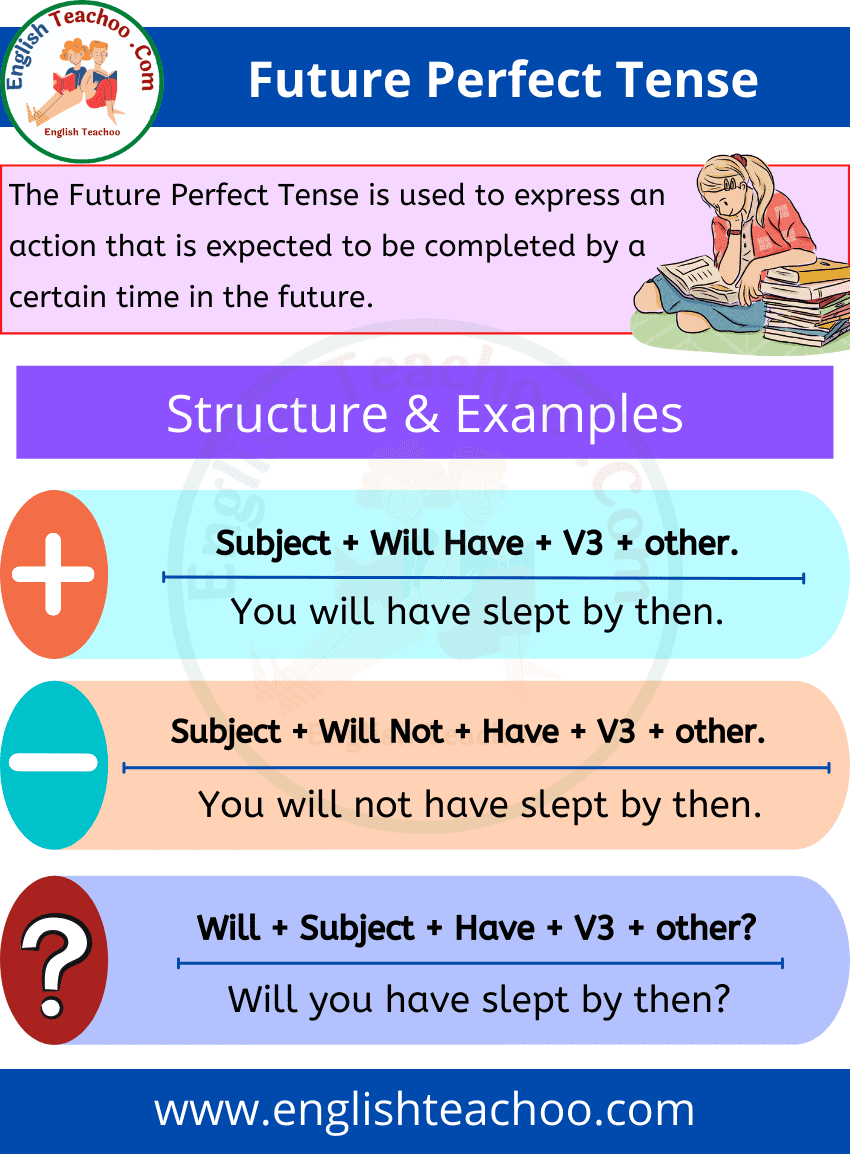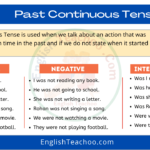Definition of Future Perfect Tense
The Future Perfect Tense is used to express an action that is expected to be completed by a certain time in the future. It expresses a sense of completion of an action that will occur in the future.

Affirmative Sentences
Structure: Subject + Will Have + V3 + Others.
Examples:
- I will have eaten my food.
- She will have gone to school.
- He will have played football.
- We will have fallen asleep.
- They will have left the office.
Negative Sentences
Structure: – Sub + Will Not + Have + V3 + others.
Examples:
- I will not have eaten my food.
- She will not have gone to school.
- He will not have played football.
- We will not have fallen asleep.
- They will not have left the office.
Interrogative Sentences
Structure: – Will + Subject + Have + V3 + others ?
Examples:
- Will I have eaten my food?
- Will she have gone to school?
- Will he have played football?
- Will we have fallen asleep?
- Will they have left the office?
Future Perfect Tense Examples
- My mother will have cooked the food.
- He will have finished his work.
- I will have bought a new car.
- We will have shifted to a new home.
- They will have arrived by 8 o’clock.
- By the time you reach the train will have left.
- By next week, you will have got a job.
- I will have typed two letters by lunch today.
- We will have completed this task by evening.
- Will your father have come home before you reach?
- The thief will have run away before the police arrived.
- The shop will have closed before you reach.
- The rain will have stopped before six o’clock.
- Will you have left your home by then?
- My wife will have cooked the food before I reach home.
Other Tenses:
- Simple Present Tense
- Present Continuous Tense
- Present Perfect Tense
- Present Perfect Continuous
- Simple Past Tense
- Past Continuous Tense
- Past Perfect Tense
- Past Perfect Continuous
- Simple Future Tense
- Future Continuous Tense
- Future Perfect Tense





